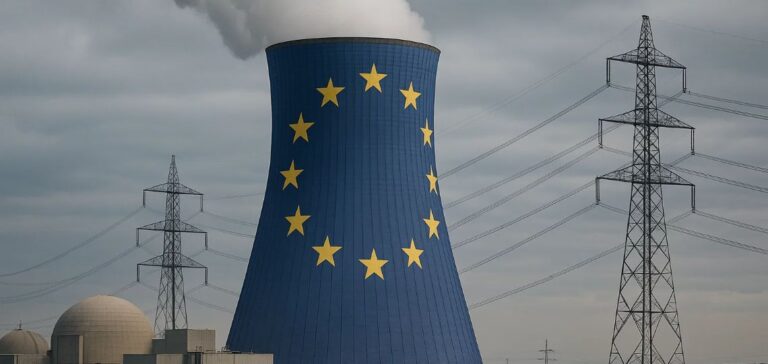The European Union (EU) has proposed delaying the classification of hydrogen produced from nuclear power as “low-carbon” until 2028. Still under review, this decision could slow the development of a market for this emerging energy source as the EU seeks to diversify its hydrogen supply.
A draft regulation from the European Commission states that hydrogen generated using nuclear energy will only be classified as “low-carbon” following an evaluation scheduled for 2028. The initiative aims to define the standards governing low-carbon fuels in order to stimulate a market for sustainably produced hydrogen.
This three-year delay, according to Emmanuel Brutin, Director General of Nuclear Europe, unfairly benefits hydrogen made from renewable sources over nuclear-based hydrogen. In 2023, the EU already adopted rules confirming that hydrogen produced using renewables can count toward the bloc’s climate targets.
Brussels authorities also announced that consultations on nuclear-related rules will begin in June 2026, further extending the period of uncertainty for hydrogen producers using nuclear energy. Although nuclear energy generates no CO2 emissions, it is not considered a renewable energy source like wind or solar.
The role of nuclear power in the EU’s energy transition remains contested. Countries such as France, Poland and Sweden support incorporating nuclear into EU green policies, citing its ability to deliver consistent base-load electricity. In contrast, nations including Germany and Denmark oppose this approach, arguing it could divert attention from the major investment needed in wind and solar power to meet the EU’s climate objectives.






















